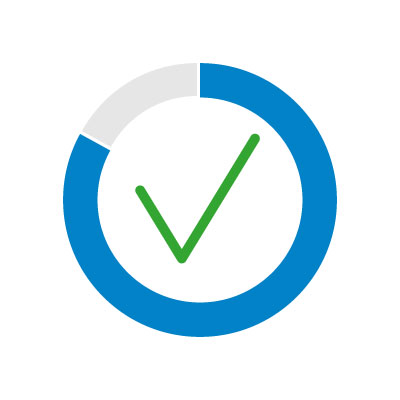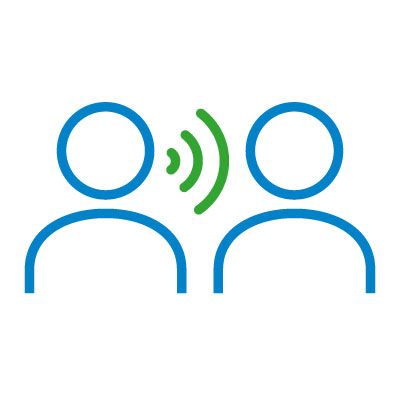Catch up on everything you missed, everything you need to know
With everything going on in Massachusetts and nationally, we know it’s been hard to catch everything happening with the 2022 ballot questions.
So we wanted to make it as easy as possible for reporters to find all the information they need on the Flexibility & Benefits for Massachusetts Drivers ballot question that will be decided by voters in November 2022. Below you will find key dates, polls, research reports, facts, FAQs, and more.
Remind me, what does the ballot question do?
The proposed rideshare & delivery driver ballot question secures the overwhelmingly popular flexibility that app-based rideshare and delivery drivers currently enjoy, while also providing them with historic new benefits.
Included in the Flexibility & Benefits for Massachusetts Drivers ballot question are provisions that would establish an earnings floor equal to 120% of the Massachusetts minimum wage ($18 per hour in 2023 from app-based platforms, before customer tips) for app-based rideshare and delivery drivers, but with unlimited upward earning potential. Drivers would continue to keep 100% of their tips. Rideshare and delivery network companies will be required to pay healthcare stipends for drivers who work at least 15 hours per week, including full stipends equal to 100% of the average employer contribution toward a Health Connector plan premium for those who work an average of 25 hours or more per week. Rideshare and delivery drivers would also earn paid sick time, paid family & medical leave, and be provided with on-the-job injury protection.
Why are there two versions of the ballot question?
The two versions of the ballot question are identical except Version B does NOT have the Paid Occupational Safety Training Requirement (Section 4 in Version A).
We feel the safety trainings are an important component of this proposal. However, because of the strict guidelines that govern the Massachusetts initiative petition process, it is possible that these provisions will be challenged by opponents who would not like to see the voters decide this question based on a legal theory called “relatedness.” In that event, those provisions could be added by the legislature at a later date.
Where are we in the ballot question process?
In Massachusetts, all proposed 2022 ballot questions were required to submit at least 80,239 certified signatures to Secretary of the Commonwealth William Galvin by December 1, 2021. Flexibility & Benefits for Massachusetts Drivers submitted roughly 103,000 signatures that were certified by local clerks for each version of the question. Ballot questions that submit the required number of certified signatures were then introduced to the Legislature for consideration in early 2022. The Legislature then has the option to pass the measure, propose a substitute, or take no action.
If the Legislature does not pass the measure as filed before the first Wednesday in May 2022, the petitioner must then collect 13,374 more signatures and file them with local election officials for certification 14 days before the first Wednesday in July 2022 and with the Secretary by the first Wednesday in July 2022. After enough signatures are filed, the measure is then placed on the ballot for the next statewide general election.
Will there be a legislative hearing on the ballot question? If so, when?
A Joint Committee on Financial Services hearing took place on Wednesday, March 30, 2022 to discuss the ballot initiative. Dozens of drivers testified in favor of flexibility and benefits at the hearing, joined in spirit by more than 6,400 Massachusetts drivers who signed a petition supporting the proposed ballot question. A full recording of the hearing can be viewed at the link. Driver testimony begins at 1:03:13.
What happens if the legislature doesn’t act on the ballot question?
We look forward to working with the legislature to find a solution which will allow drivers to remain independent while providing historic new benefits. If they don’t take action by May 3rd, we will collect the second round of signatures required to ensure the ballot question is before voters in November 2022.
What else should I know?
We have lots of great information for you. Starting here:

83% of Massachusetts drivers
prefer to remain independent contractors while receiving new benefits

By a margin of 8:1
rideshare & delivery drivers in Massachusetts support the proposed ballot questions
Research
Where can I find some of the studies you have cited over the last few months?
Which ones do you need?
For some gig workers, losing the flexibility to set their own schedules is equivalent to taking a 17 percent pay cut…
Katsnelson, Laura, and Felix Oberholzer-Gee. “Being the Boss: Gig Workers’ Value of Flexible Work.” Harvard Business School Working Paper, No. 21-124, May 2021.
The vast majority (88%) of drivers say that Prop 22 has been good for them.
EMC Research, California App-Based Rideshare & Delivery Driver Survey, September 2021
If Prop. 22 passes: A worker driving an average of five hours per week would earn the equivalent of $25.61 per hour after accounting for expenses and wait time between rides.
UC Riverside School of Business, Center for Economic Forecasting & Development, Proposition 22: Analyzing the Impact on App-Based Drivers’ Earnings, August 2020
Independent contractors overwhelmingly prefer their work arrangement (79 percent) to traditional jobs. Fewer than 1 in 10 independent contractors would prefer a traditional work arrangement.
U.S. Bureau of Labor Statistics, Economic News Release: Contingent and Alternative Employment Arrangements News Release, June 2018
Workers rather than employers seem to be driving the trend in self-employment, since the increase comes from people combining self-employment with traditional employee relationships. Some politicians and places, like California, have sought to curb self-employment, on the theory that employers have created the gig economy in an effort to evade their tax and regulatory obligations. The reality is more complicated.
The New York Times, Earning Income on the Side Is a Large and Growing Slice of American Life, December 2019

75% of California drivers
say their pay has increased under Prop 22

84% of California drivers
urge other states to pass similar ballot questions
Myths v. Facts
This is all interesting, but the opposition says…
The opposition makes lots of arguments based on false premises and willful misrepresentation of what the vast majority of rideshare and delivery workers truly want, and what the data shows.
The truth is that, by any measure, this ballot question will provide new, groundbreaking rights to drivers, while protecting their flexibility to remain independent contractors.
Below is a line-by-line comparison of the fictional claims made by opponents and the truth of what the ballot question contains.
Myths
Perpetuates ‘false choice’ on flexibility.
While Big Tech expands flexibility for favored, high-status employees, the initiative falsely claims that drivers can only maintain scheduling flexibility by surrendering all other worker rights.”
Facts
Schedule flexibility and flexibility to decide whether or when to work at all are not the same.
Right now, app-based workers can choose to work when they want, where they want and for however long they want. They can choose whether to accept a job or not. They enjoy unlimited upward earning potential and can decide to take time off whenever they want, for however long they want, without needing to ever ask a “boss.”
By contrast, coffee baristas or grocery store cashiers don’t get to choose the location they work at or how long their shifts are, nor are they in control of which orders they want to make. A Starbucks barista cannot walk across the street in the middle of her shift and start pouring cups at Dunkin Donuts. These employees instead earn a flat wage and have to get permission to take time off, and risk negative consequences if they take too much time off. This is what app-based workers would face if they were forced into traditional employment arrangements.
Pays sub-minimum wage
The companies would get away with paying sub-minimum wage because they only pay drivers for “engaged time.”
Paying for engaged time is what allows drivers to have the flexibility they want and, for many, need.
It allows them to use multiple apps at one time (doing a job on one app while waiting for a job on another one). Drivers also have the option to pick and choose what rides or deliveries they take. Currently, drivers are paid when they are performing a service. Otherwise drivers could log on to multiple apps and earn multiple wages for the same time, without actually giving any rides or making any deliveries. That wouldn’t make sense in any industry.
Removes protections against workplace injuries
“The ballot language…would remove app-based workers from legal protections against workplace injuries.”
False. The ballot language specifically provides occupational accident insurance for drivers.
This insurance covers injuries suffered whenever the driver is online using an app-based platform. It’s one of the core provisions.
Would pay drivers $4.82 per hour
According to a study from the UC Berkeley Labor Study, under the proposed ballot measure drivers would be paid just $4.82 per hour.
The same group’s earlier report on California’s Prop 22, was debunked when it was released back in 2019.
Even other researchers in the UC system found “major shortcomings in the Berkeley study, which lead it to significantly understate the impact of the initiative on driver earnings.”
Like in California, opponents of the Massachusetts ballot question, which would protect driver independence and flexibility while creating historic new benefits, have continued to push false and misleading information about the legislation that are not only at odds with the facts, but don’t stand up to scrutiny when compared with the success of Prop 22 in California. In fact, 75% of California Drivers Say Prop 22 “increased my pay.”
The questionable statistics, pushed by the UC Berkeley Labor Center, are far from an independent look at rideshare data. According to CalMatters, “The Legislature created the UC labor center, supported by taxpayer dollars, at the behest of union leaders to supply studies and data promoting union membership.” Report author Michael Reich has spoken at labor rallies and has had his objectivity called into question because of his close ties to organized labor.
“They already tried this misleading propaganda in California and it was rightly dismissed by drivers and voters,” said Lydia Olson, who drives with Uber in California. “The best thing about rideshare driving is you can start and stop anytime you want. Who would keep driving if it didn’t make financial sense for them? The vast majority of drivers take steps to maximize their income like understanding when and where to drive, using multiple apps to choose the best jobs, putting themselves in places to get better rides and much more. This ‘study’ is nonsense from a special interest thinktank. I hope that Massachusetts voters will support what drivers REALLY want, which is the flexibility to earn an income in a way that makes sense for us, without interference from those who do not understand our industry and are seeking to destroy it and the livelihoods of tens of thousands of us who rely on it.”
Removes antidiscrimination protections
The ballot question “Removes antidiscrimination protections for app-based workers. Ballot measure exempts Big Tech companies from the robust protections of Massachusetts Civil Rights Act.”
The legislation creates new legal protection from discrimination.
The legislation creates new legal protection from discrimination, prohibiting companies from discriminating on the basis of protected characteristics identified in Massachusetts employment law.
Allows companies to continue unfair deactivations
“Companies can continue arbitrary, unfair, discriminatory deactivations.”
Companies are expressly prohibited from discriminating against app-based drivers based on race, gender, sexual orientation, or any other protected class in contracting or deactivation.
The ballot initiative requires companies to provide opportunity for app-based drivers to appeal deactivation and prohibits deactivation for any reason not identified in the driver’s contract.
Allows companies to cheat the state unemployment system
“Allows companies to cheat the state unemployment system of hundreds of millions… allows gig giants to free-ride on a system paid for by law-abiding Massachusetts businesses.”
Extending unemployment benefits to all workers, such as freelancers and gig workers, is not as simple as classifying them as employees for the purposes of unemployment insurance.
State unemployment systems and criteria weren’t designed to meet the needs of a workforce that works entirely on demand, at the workers’ discretion, and is not fired or laid off.
The opposition glosses over these nuances. It would be challenging or impossible to identify which drivers are entitled to UI benefits. In an open marketplace like app-based work, where anyone with appropriate equipment and the ability to pass a background check can access work, an individual can only lose access to the earnings opportunity when they are deactivated. For gig workers, in the vast majority of cases, individuals are only deactivated when they have violated a platform’s community guidelines, e.g. committed fraud, a safety violation — activities that would generally preclude a worker from subsequently receiving UI benefits.
No Social Security contributions from Uber/Big Tech.
“No Social Security contributions from Uber/Big Tech. Gig giants seek special exemption from paying into Social Security. Workers denied basic dignity in retirement.”
The legislation provides drivers with funds to cover their needs, without designating when in their life they receive them, the way Social Security does.
Moreover, social security is a federal issue. Neither the proposed legislation nor any other state law would impact this issue.
Less than 10% of app-based workers would qualify for the healthcare stipend.
“Less than 10% of app-based workers would qualify for the healthcare stipend. For the few workers that qualify, the benefit is about $68 per month, less than 20% of the cost of a Bronze level family plan.”
Here the opposition is admitting that gig work is NOT full-time work for the vast majority of drivers, which undercuts their most basic argument.
The reality is that the majority of drivers receive healthcare from other sources, often from a full-time job.
Additionally, the opposition’s framing here is again misleading: even in full-time employment, employers do not usually cover 100% of monthly premium contributions for employees.
Beyond that, the only state with similar legislation is California, where Prop 22 took effect almost one year ago. A September 2021 survey of 1,500 California drivers conducted by pollster EMC Research found that 88% believed Prop 22 had been good for them as a driver. 75% of California drivers reported that Prop 22 had “increased my pay” and 89% agreed Prop 22 “protects my freedom and flexibility.” (By contrast, less than one in five California drivers would prefer “a system without Prop 22 where drivers are employees, have set schedules, and receive all the benefits and protections of an employee” over the current system under Prop 22.) And 84 percent of California drivers said they would recommend other states pass laws that do the same things as Prop 22.
According to state figures, 97% of Massachusetts residents currently have health insurance, such as through a job, a spouse/partner, or a plan purchased directly from an insurer or via a state program. For the small minority of drivers who are not already part of this 97%, the ballot question offers a crucial new benefit. Specifically, drivers who work at least 25 hours a week would be entitled to a company-paid health care stipend worth at least 82% of the average Bronze plan premium on the state’s Health Connector; drivers who worked at least 15 hours would see a stipend for at least 41% of the premium. (See Section 5 of the ballot question)
Need more?
Have questions that are not answered above?
Want to interview drivers about their experience?
Please email us at press@yesformassdrivers.org
 Yes for Mass Drivers
Yes for Mass Drivers